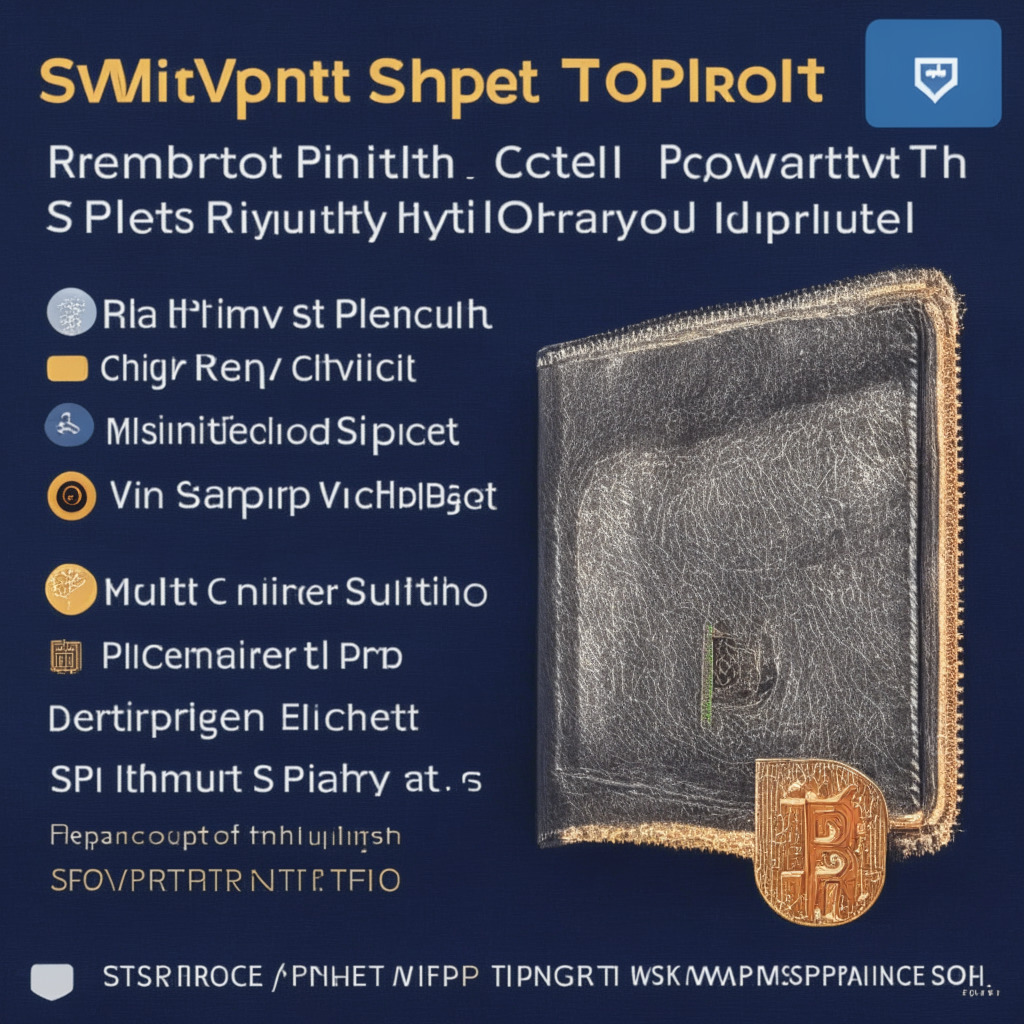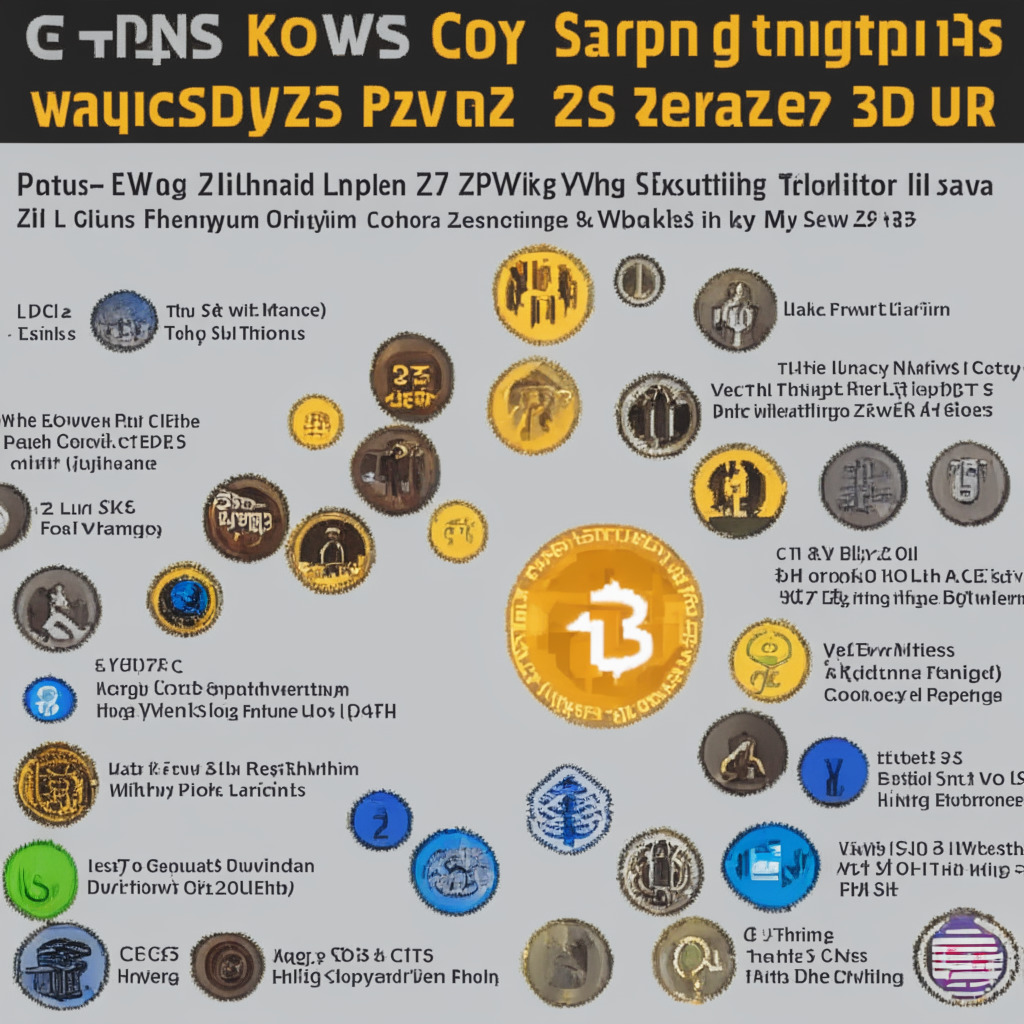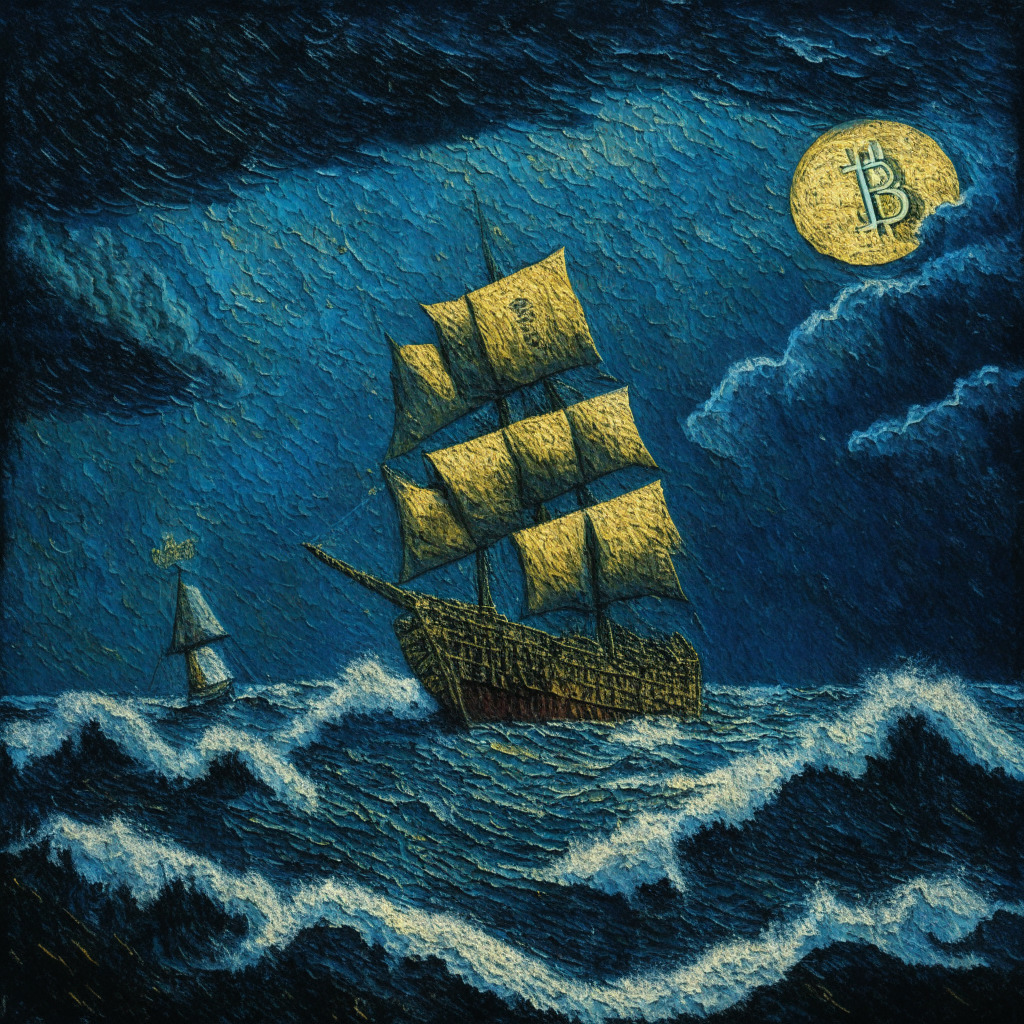Japan Blockchain Week 2023, backed by the Japanese Ministry of Economy, Trade and Industry, aims to connect Japan’s Web3 networks with international participants and promote a crypto-friendly atmosphere. Amid rising demand for clearer regulatory frameworks, Japan focuses on fostering a hospitable environment for digital assets, pursuing tax leniency and addressing accounting challenges faced by Web3 businesses.
Search Results for: white paper
Bridging Solana and Ethereum: Key App Innovates and Cross-Network Transfers Simplified
Key App introduces a bridge for Solana and Ethereum users, simplifying token transfers between networks using Wormhole’s technology. The European Central Bank moves closer to a digital euro with finalized prototypes, while Hong Kong’s CoinEx launches BitHK, a regionally-focused crypto trading platform.
Asian Nations Lead the Charge in Crypto Regulation: Innovations, Trust, and Challenges
Asian nations are increasingly regulating cryptocurrencies, with Japan enforcing stricter Anti-Money Laundering measures, South Korea mandating officials to report crypto holdings, and Hong Kong allowing licensed platforms to serve retail investors. Elsewhere, Beijing fosters Web3 technology innovation, and the International Organization of Securities Commissions pushes for global crypto regulatory frameworks.
DCG Shuts Down TradeBlock: Analyzing the Crypto Winter’s Impact on Industry Future
The Digital Currency Group (DCG) plans to close its prime brokerage subsidiary, TradeBlock, due to the ongoing crypto winter, uncertain regulatory environment, and broader economic challenges. The closure raises concerns about the cryptocurrency industry’s future and emphasizes the need for better cooperation and global coordination among stakeholders, regulators and international organizations to ensure consistency and clarity in crypto asset regulation.
The Rise and Fall of Facebook’s Libra: A Bittersweet Legacy in Crypto Space
Facebook’s Libra stablecoin project aimed to revolutionize cross-border remittances and international commerce, but faced significant obstacles and backlash. Although unsuccessful, it brought mainstream attention to cryptocurrencies and inspired regulatory bodies to address the evolving crypto ecosystem.
LLMs Revolutionizing Crypto Trading: Boon or Bane in Market Sentiment Analysis?
The transformative advancement of large language models (LLMs) offers a potential solution for crypto sentiment analysis, with ChatGPT as a notable example. LLMs enable traders to capitalize more effectively on market irrationalities, potentially revolutionizing the crypto landscape.
Crypto Community Debates: Ledger Recover’s Impact on Wallet Security and Trust
Ledger’s announcement of their upcoming private key recovery service, Ledger Recover, sparked skepticism among the crypto community, raising concerns about potential attack vectors and compromising the security of Ledger hardware wallets. The company has delayed the service and plans to address user feedback in an upcoming Twitter Spaces town hall event.
Ledger Recover: A Reckless Security Risk or Innovative Seed Phrase Solution?
Ledger’s latest update, Ledger Recover, allows users to opt-in to recover private seed phrases with encrypted portions sent to third parties. Critics argue security risks while Ledger claims it improves traditional storage practices. The crypto community should focus on facts when assessing security innovations.
Asymmetry Finance Raises $3M: Challenging Lido’s Dominance with safETH ETF Token and Community Power
Asymmetry Finance raises $3 million to expand its liquid staking protocol and introduce safETH token, an innovative exchange-traded fund (ETF) for various liquid staking tokens. This development challenges Lido’s market dominance and brings a community-driven approach to managing the token’s portfolio.
BlockGPT: Decentralizing AI Chatbots and Token Rewards – Boon or Bane for Blockchain?
BlockGPT, a Web3 company, aims to create a decentralized AI chatbot with a tokenized reward system. The launch introduces two tokens, BGPT and AIBGPT, built on PancakeSwap, and offers users NFTs and token prizes for engagement in chat sessions.
Hacker Targets Abandoned Meme Tokens: A Victimless Crime or Crypto Ecosystem Cleanup?
An opportunistic hacker has been targeting abandoned meme tokens, draining their liquidity using flash loans from DeFi protocol Balancer. The method, spotted by Giorgi Khazarade, involves borrowing large sums of money and redirecting it to increase token pool volume, then draining remaining liquidity. This highlights potential vulnerabilities in abandoned meme tokens and the need for robust security measures to protect investors from potential losses.
EU’s MiCA Regulation: Impact on Crypto Assets, Stablecoins and NFTs, and Investor Protections
The European Union is preparing to implement the Markets in Crypto Assets (MiCA) regulation by July 2023, covering crypto-assets and their issuance, trading, and offering. MiCA aims to update the EU with new technologies, introducing stricter rules on stablecoins, increased disclosure obligations for crypto businesses, and implementing anti-money laundering and data security procedures. However, it does not apply to non-fungible tokens (NFTs).
Chia Network Enters Web3 Gaming: Facing Giants and Redefining the NFT Landscape
Chia Network launched the Chia Open Digital Economy (CODE) framework, aiming to empower an open metaverse of games and applications with interoperable assets. Chia announced a proof-of-concept trading card game, ChiaTCG, embracing Chia NFTs and turning them into playable cards, showcasing the potential of NFTs within gaming.
UK CMA Dives into AI Impact: Balancing Growth, Consumer Protection, and Competitive Markets
The UK’s Competition and Markets Authority (CMA) will examine AI technology’s impact on consumers and the economy, focusing on foundation models like OpenAI’s ChatGPT to ensure safety, transparency, fairness, and accountability. The CMA’s review aims to promote open, competitive markets and effective consumer protection, concurrently fostering AI growth and user protection from misinformation.
Layer 2 Cambrian Explosion: Bitcoin’s Tech Renaissance and the Future of Blockchain
The Bitcoin ecosystem is on the brink of a layer 2 “Cambrian explosion” driven by new features like covenants and script updates. A technological renaissance in the form of Bitcoin non-fungible tokens (NFTs) through the Ordinals protocol is underway, with 3.3 million NFTs created in under five months.
AI in the Workplace: Balancing Efficiency and Job Security Amid IBM’s Automation Plans
IBM plans to replace 30% of non-customer-facing positions with AI within five years, generating mixed reactions on job security concerns. AI can bring efficiency, cost savings, and innovative solutions, but balancing technology adoption with job security remains essential for the future work landscape.
Bitcoin’s Wild Ride: Soaring Highs, Crushing Lows, and Conflicted Feelings Among Crypto Enthusiasts
Bitcoin has seen some exciting action this week, as it experienced a significant price hike […]
The Balancing Act of Tokenization: Bridging Blockchain and Traditional Finance Amid Regulatory Challenges
“Tokenization, or representing real-world assets as blockchain tokens, offers advantages like easier asset management. However, firms must comply with regulation standards, understand duties linked to tokenized assets’ public offerings, and regularly audit assets. An adaptable compliance solution is crucial, given the evolving nature of token regulation.”
Optimism Network’s Major OP Tokens Private Sale: Economic Genius or Price Plunge Catalyst?
“Optimism Network plans to sell 116 million OP tokens via a private sale, expected to generate $160 million. The tokens are drawn from the unreserved portion of the OP token treasury and are subjected to a two-year lock-up period. This strategic approach aims at expanding Optimism’s market reach responsibly without affecting the token’s value.”
Cross-Chain Metamask Snaps: A Boon for Wallet Technology or a User Experience Nightmare?
MetaMask Snaps, a new plugin by Consensys, will allow different blockchain networks like Bitcoin and Solana to interact directly with the MetaMask wallet to facilitate transaction signing and smart contract understanding. However, concerns around user-friendliness, security checks, and notification inundation need to be addressed.
EOS Network’s Dramatic Turnaround: Nod from JVCEA & Promises of the Japanese Market
EOS Network, a blockchain that garnered $4 billion in its initial coin offering, has been granted white-list approval by Japan’s regulatory body for crypto exchanges. This allows EOS to compete with major cryptocurrencies like Bitcoin and Ethereum on Japan’s regulated crypto exchanges. The approval signifies EOS’s compliance commitment and opens new opportunities for the network in the Japanese market.
Unveiling Cointime Economics: A New Perspective on Bitcoin’s True Economic Worth
“Investment company Ark Invest and security firm Glassnode have presented a new approach to understanding the Bitcoin economy named “Cointime Economics.” The whitepaper describes a measurement system called “cointime”, which seeks to portray Bitcoin’s true value based on its dormancy period. It includes introducing metrics like “liveliness” and “vaultedness” for evaluating Bitcoin’s economic trends.”
Navigating the Ethical Minefield: Worldcoin’s Biometric Crypto Revolution & Its Controversies
“Worldcoin project, with its audacious ambition of creating a biometrically verified digital ID for every global citizen, has reignited global dialogues on data privacy. It’s faced mixed reviews for potentially manipulating less privileged communities by offering wealth in exchange for personal data.”
Friend.tech Takes Social Media by Storm, but at What Cost? Blockchain Revolution or Privacy Panic?
Friend.tech, a blockchain-based social media application, presents the idea of tokenizing people’s profiles to create a marketplace where users can buy “shares” of others. Leveraging Coinbase’s layer 2 network, this revolutionary platform sparked significant interest but also raised concerns regarding data privacy and lack of project transparency.
Navigating MiCA: Ukraine’s Struggle with new EU Crypto Regulation Measures
As Ukraine nears EU membership, it faces a critical shift with the impending Markets in Crypto-Assets Regulation (MiCA). The law’s stringent requirements for crypto service providers might reduce the attraction of Ukraine’s jurisdiction. Moreover, compliance challenges could discourage new entrants, potential legal risks, and steep issuance costs, affecting crypto exchange services. The regulation also overlooks certain crypto assets, leaving a potential legislative gap. However, feasible adaptation of MiCA could help Ukraine influence European crypto policy upon getting full EU membership.
Stablecoins: A Safer Alternative to Banking or a Risky Proposition?
“Brendan Malone, a former Federal Reserve Board analyst, posits stablecoins might pose less risk than traditional bank deposits. Stablecoins, such as Tether’s USDT and Circle’s USD Coin, offer an efficiency-laden alternative to traditional banking, given its insulation from the typical crypto volatility.”
Crypto Market Turmoil: A Closer Look at Pepe Coin’s Turbulence and the Emerging Prospect of BTC20
Pepe Coin, the third most valuable meme coin, is facing a large sell-off amidst a broader digital currency market downturn. Alongside big names like Bitcoin and Ether, this sell-off indicates crypto investors’ tendency to protect earnings amidst negative news and market conditions. However, despite the market slump, Pepe Coin could demonstrate resilience and growth potential as the market transitions back to recovery.
Worldcoin’s Launch: Exploring its Innovative Tokenomics amid Technical Setbacks
The WLD project has launched their mainnet, revealing unique tokenomics and an innovative “iris-scanning Orb”. However, technical problems have overshadowed the launch. WLD supply will max at 10 billion tokens for 15 years, with initial circulation at 143 million. Yet, surprising complexities of network development led to a controversial increase in insiders’ token allocation. While tokens share for users are pre-minted, they’re locked for 15 years, highlighting long-term stability intent.
Soaring Bitcoin Speculations in 2023: Examining BTC20’s Potential and the $50,000 Dream
“Bitcoin’s price dance hovers just above $29,500, with potential to reach $50,000 by 2023. However, caution at this point is crucial as impending bearish demeanour could emerge. Meanwhile, emerging cryptocurrency BTC20 is gaining momentum, turning heads with a funding milestone of over $469,600 three days post-launch.”
Bitcoin Off-shoots: A Skyrocketing Success or Looming Bubble Waiting to Burst?
The article discusses the resurgence of Bitcoin and the rise of off-shoot projects like BITCOIN and BITCOIN2. It introduces BTC20–a new Bitcoin offshoot, using ERC-20 proof-of-stake technology, aiming to reduce Bitcoin’s carbon footprint and reinventing its benefits.
Singapore’s Crypto Ban: Balancing Risk Reduction and Investment Freedom
“Singapore’s Monetary Authority (MAS) has moved to ban crypto lending and staking for retail customers, in an effort to safeguard aspects of Digital Payment Token (DPT) services. This ban extends to all DPT service providers from October 2022. However, institutional and certified investors may continue these activities. Meanwhile, exchanges are urged to implement protective measures for customer assets.”
DeLabs’ Pioneering Approach: Is it Reinventing the NFT Space or Fueling Chaos?
“DeLabs, creator of PFP NFT platforms DeGods and Yoots, is revolutionizing roadmap strategies by embedding potential features as Easter eggs within the website. The planned updates include potential female DeGod avatars and a unique take on NFT rights, potentially allowing for official brand licensing.”































